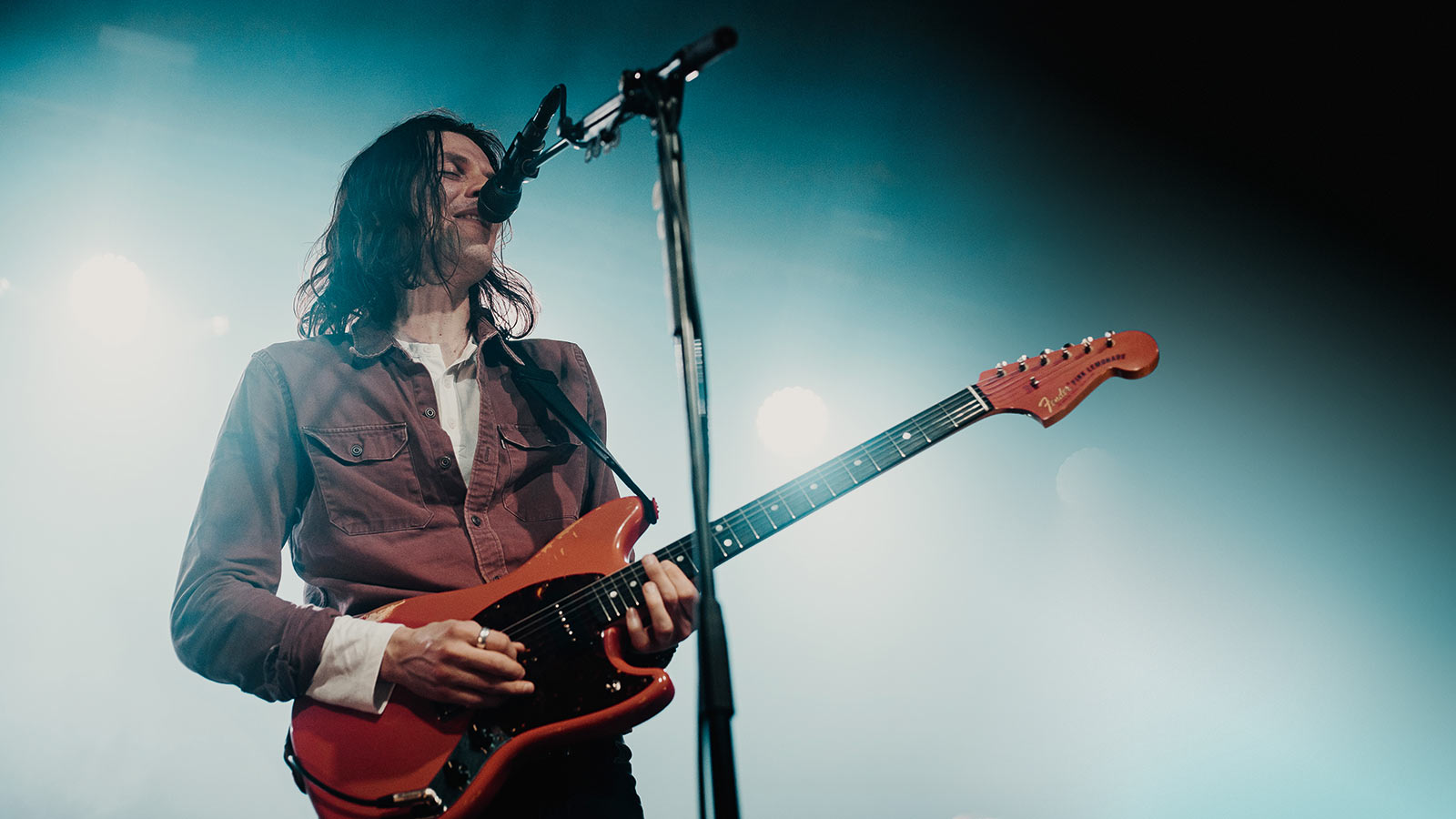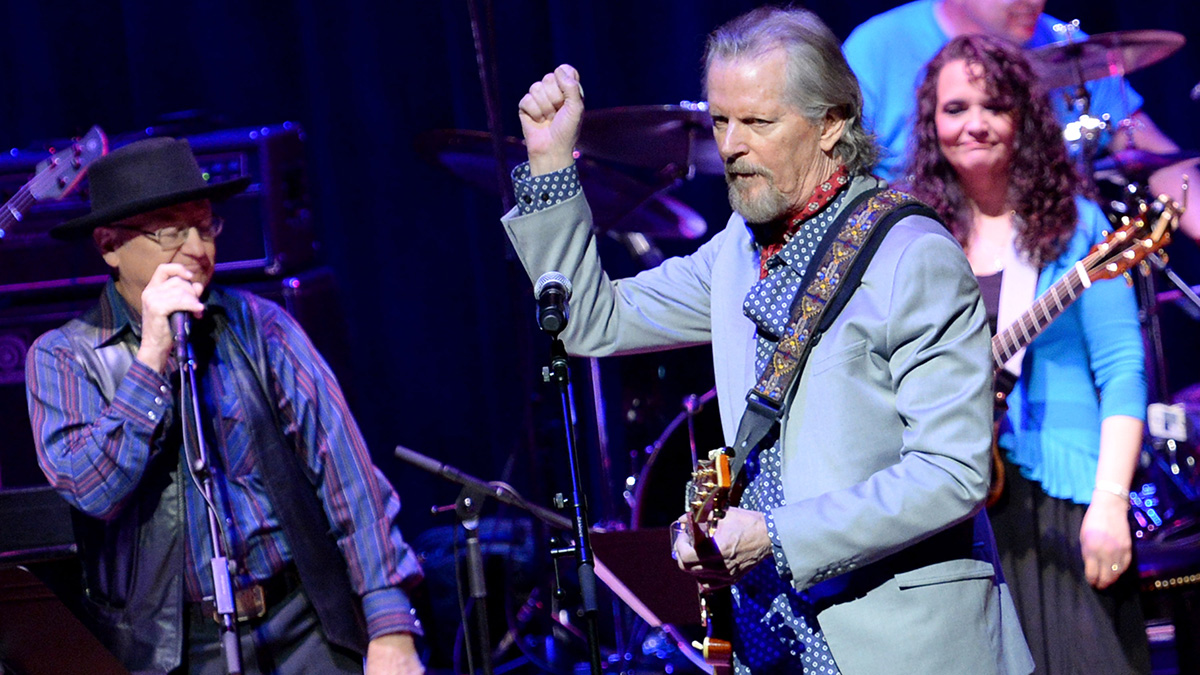How James Bay made Fender history with his rule-breaking Pink Lemonade Mustang
The UK singer-songwriter on his partnership with the Big F for a unique offset, and what to expect from new album Leap

Singer-songwriter James Bay couldn’t be happier with his new guitar. Four years in the making, the Fender Pink Lemonade Mustang is a genuine one-of-a-kind. Here, he talks about the design of this unique electric guitar, and about this forthcoming third album, Leap.
How did the project come about, James?
“I’d finished writing my song Pink Lemonade, which I remember really nailing the sound for through a Fender Princeton and a guitar with P-90s. I thought – in my indie rock, early Kings of Leon-inspired state – that the Mustang is one of the Fender guitars that really personified that sonic and aesthetic.
“I’d found a Fender Cyclone years before that I didn’t buy – it was the only Mustang I’d seen at the time with P-90s. So I said, ‘What I’d love to do, Mr. Fender, is recreate the Cyclone, tweak a few things, put P-90s and a pinkish color, and call it the Fender Pink Lemonade.’”
Why did it take so long?
“It’s a first for Fender. Apparently, on every headstock they’ve ever produced, they’ve never put anything more than the model name after the word ‘Fender’. So ‘Pink Lemonade’, in the Mustang font, is the first time they’ve ever done that. There were a lot of boardroom meetings to just allow one guitar to get made like that.”
I said, ‘What I’d love to do, Mr. Fender, is recreate the Cyclone - tweak a few things, put P-90s in and a pinkish color
What are its defining features?
Get The Pick Newsletter
All the latest guitar news, interviews, lessons, reviews, deals and more, direct to your inbox!
“The color is a bit unique in that it’s sort of the Fiesta Red, but I wanted a coral type thing. I asked them to take everything off the back of the neck, so it’s very woody, and there’s lots of lovely relic-ing all over it. The P-90s are Curtis Novak hand-wound and they’re stunning!”
With its indie, grunge and stoner rock associations, is the Mustang a good indication of where your ever-evolving sound is heading?
“I will lean in that direction, but the list of sonics there doesn’t necessarily line up with, say, The Rolling Stones, which is an electric guitar sound I love. I’ll always try and sound like them in some way or another. So yes and no.
I’m often picking from a pretty long menu of different guitar sounds.
“Before I met a record label – before anybody had any idea that I existed musically – I’d been in bands that were trying to sound like Kings of Leon or The Black Crowes, so I’m often picking from a pretty long menu of different guitar sounds.”
What can people expect from your new album, Leap?
“I’m always trying to push a boundary somewhere. With the second album it was sonically – I threw a bunch of synthesizers at it and had a great time. But guitar is where I’m comfortable and also where I can push myself, so there’s a lot on this album.
“It’s still not drenched in solos, which is something I absolutely indulge in live, but there are more guitar parts, which I’m really excited for people to hear. There’s a lot of live takes. Not from shows, but everyone in the room – so there’s a very live feel and momentum.”
- Leap is out on July 8 via Mercury Recordings/Republic.
Since graduating university with a degree in English, Ellie has spent the last decade working in a variety of media, marketing and live events roles. As well as being a regular contributor to GuitarWorld.com, she currently heads up the marketing team of a mid-scale venue in the south-west of England. She started dabbling with guitars around the age of seven and has been borderline obsessed ever since. She has a particular fascination with alternate tunings, is forever hunting for the perfect slide for the smaller-handed guitarist, and derives a sadistic pleasure from bothering her drummer mates with a preference for wonky time signatures.
“What blew me away was that everyone wanted the curly maple top. People were calling, saying, ‘I’ve got to have the bird inlays’”: Paul Reed Smith on raising the Standard 24, finally cracking the noise-free guitar and why John Sykes is a tone hero
“It combines unique aesthetics with modern playability and impressive tone, creating a Firebird unlike any I’ve had the pleasure of playing before”: Gibson Firebird Platypus review





![[from left] George Harrison with his Gretsch Country Gentleman, Norman Harris of Norman's Rare Guitars holds a gold-top Les Paul, John Fogerty with his legendary 1969 Rickenbacker](https://cdn.mos.cms.futurecdn.net/TuH3nuhn9etqjdn5sy4ntW.jpg)





